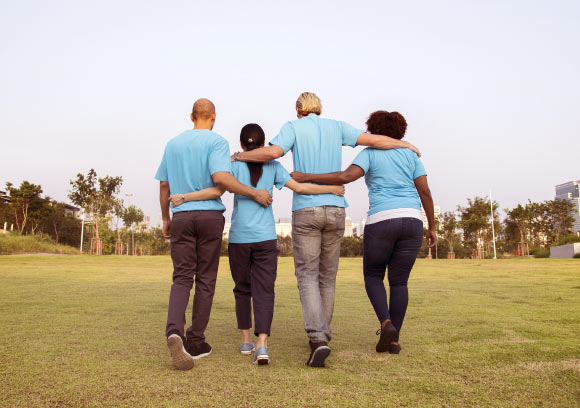According to new research, receiving hugs — a common support behavior that individuals engage in with a wide range of social partners — may buffer against deleterious changes in mood associated with interpersonal conflict.

Receiving a hug on the day of conflict was associated with improved concurrent negative and positive affect and improved next day negative affect compared to days when conflict occurred but no hug was received. Image credit: Rawpixel.
Individuals who engage more frequently in interpersonal touch enjoy better physical and psychological health and improved relationships.
Researchers have proposed that interpersonal touch benefits well-being by helping to buffer against the deleterious consequences of psychological stress, and touch might be a particularly effective buffer of interpersonal conflict.
This possibility holds important potential implications for health and well-being because conflicts with others are associated with a large range of deleterious psychological and physical outcomes.
However, the generalizability of past research on this topic is limited because studies have largely focused on the role of touch in romantic relationships.
In the new study, Carnegie Mellon University researchers Michael Murphy and his colleagues from the University of Pittsburgh and Carnegie Mellon University focused on hugs.
“A sample of 404 adults were interviewed every night for 14 consecutive days about their conflicts, hug receipt, and positive and negative affect,” the study authors explained.
“Results indicated that there was an interaction between hug receipt and conflict exposure such that receiving a hug was associated with a smaller conflict-related decrease in positive affect and a smaller conflict-related increase in negative affect when assessed concurrently.”
“Hug receipt was also prospectively associated with a smaller conflict-related increase in next day negative affect but was not associated with next day positive affect.”
While correlational, these results are consistent with the hypothesis that hugs buffer against deleterious changes in affect associated with experiencing interpersonal conflict.
“This research is in its early stages,” Dr. Murphy said.
“We still have questions about when, how, and for whom hugs are most helpful.”
“However, our study suggests that consensual hugs might be useful for showing support to somebody enduring relationship conflict.”
The study appears in the journal PLoS ONE.
_____
M.L.M. Murphy et al. 2018. Receiving a hug is associated with the attenuation of negative mood that occurs on days with interpersonal conflict. PLoS ONE 13 (10): e0203522; doi: 10.1371/journal.pone.0203522







